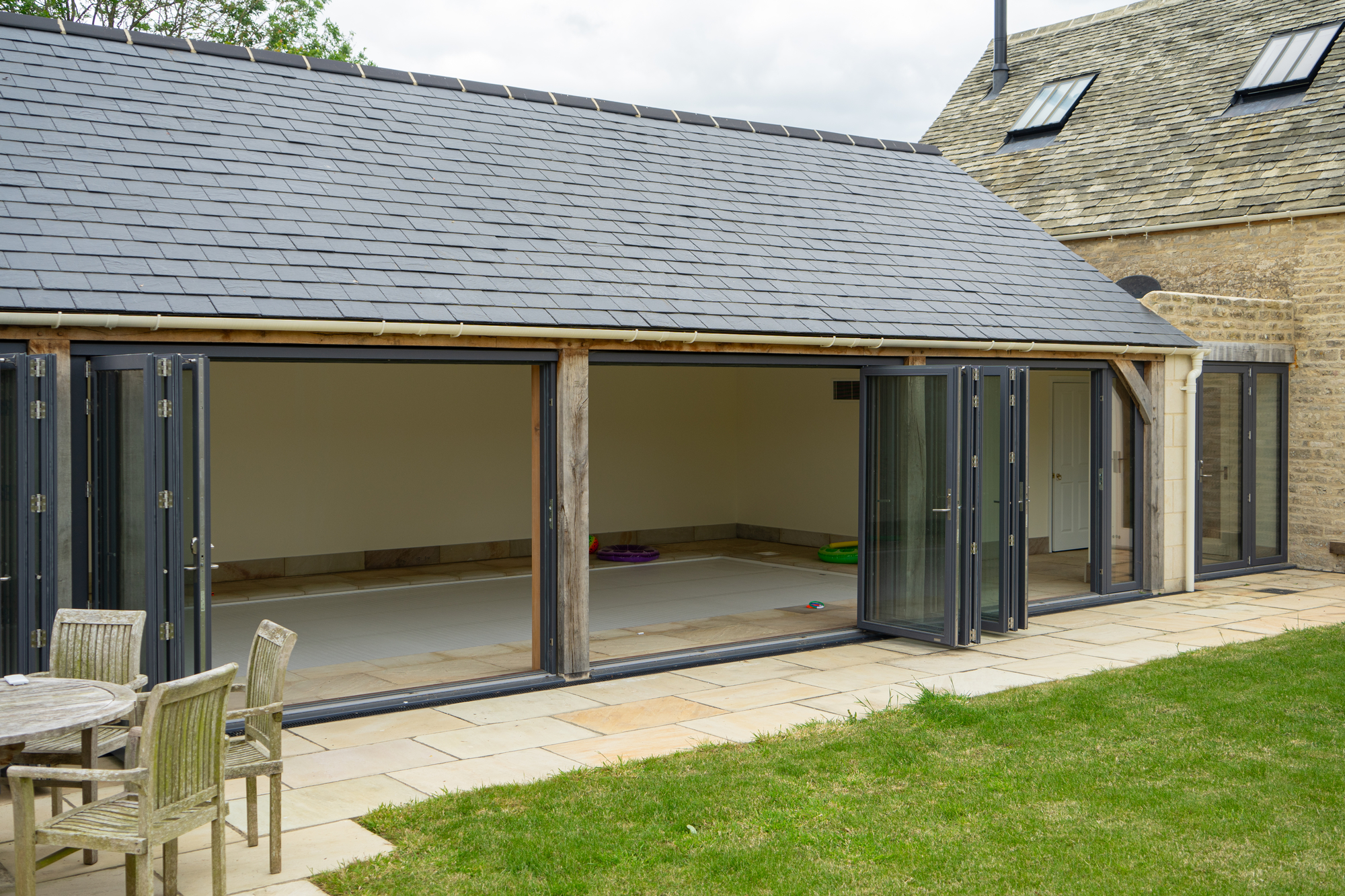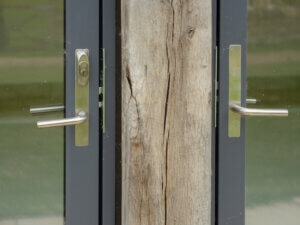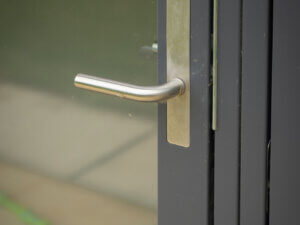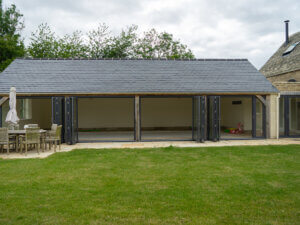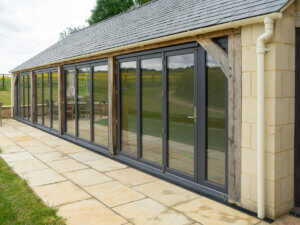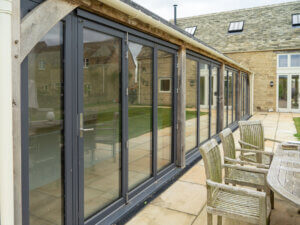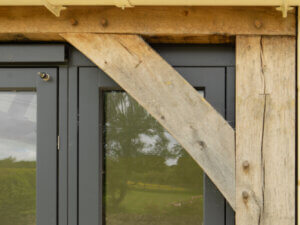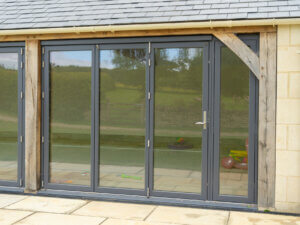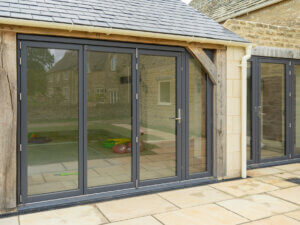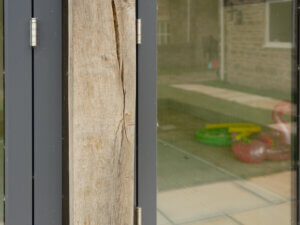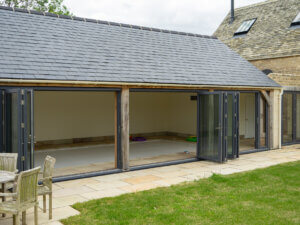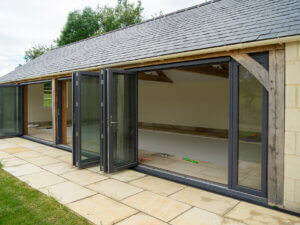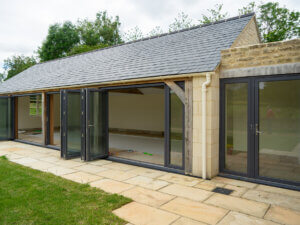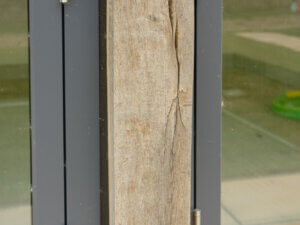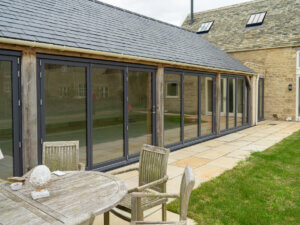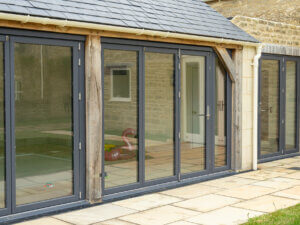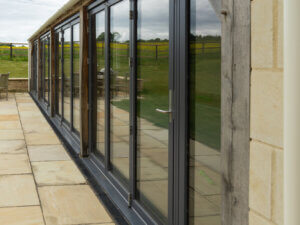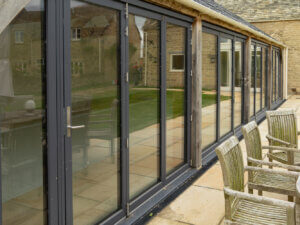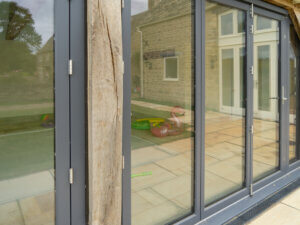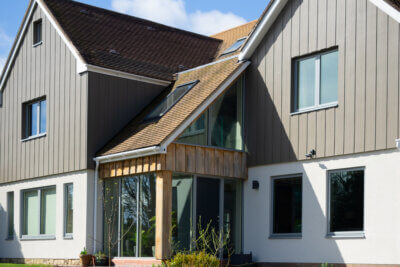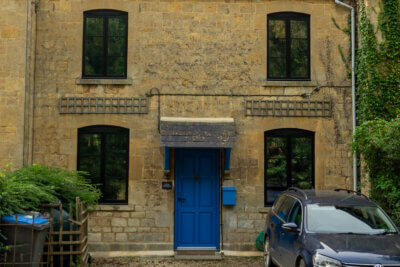Our Lacuna Bifold door is our only product we’re willing to offer near a pool environment, where the reaction between chlorine and metals can be problematic. To combat this, the door system uses marine grade stainless steel treated with lanolin, along with Prolan protective lubricant on the steel parts of the door. These protective treatments significantly extend the lifespan of the doors in areas exposed to oxidizing agents. Fix those accessories into a thermally-modified beech frame, and the result is a seriously stable bifold door.
The outward opening doors maximize internal space and enhance insulation. Wind pressure compresses the seals, improving the doors’ efficiency. Additionally, the exterior top-hung rail design means that Lacuna don’t need to have a channel or a groove in the threshold, ensuring that debris does not accumulate at the door’s base.
The client selected RAL 7015 Slate Grey to sit against the oak posts, resulting in a cohesive and complimentary design. Fixed doors are used on both ends of the main structure, where the decorative timber angles would interfere with the outward opening door leaves. Although we discussed inward opening doors with the customer, they preferred to keep the interior easy to navigate, making the minor loss of open area an acceptable compromise.
The bifolds on the far left and far right, each over 3 metres wide (including the fixed light) are designed to mirror each other, reflecting the timber structure of the building. The central bifolds also mirror each other, with each door sash being just under 1 metre wide. For easy egress and security, every door features an internal thumb-turn mechanism, with only a minimal number of external key locks.
When specifying items for a pool environment, it is essential to consider the interaction between the materials we use and the chlorine used to kill off bacteria.
In comparison to iron, steel and brass, aluminium window hardware is normally a brilliant choice. It doesn’t require rust-protecting, and it’s a relatively inexpensive material to manufacture. While aluminium is often thought not to rust or, more scientifically, “oxidise”, it actually does so extremely quickly. But the resulting aluminium-oxide layer forms a protective barrier: stopping further oxidisation of the underlying metal. And placing an aluminium part in a chlorine-rich area creates a big problem. That protective oxide layer suddenly stops being protective. Thus, we have only one choice of metal: stainless steel.
Contact us!
For any questions about our products and services, or to get your quote, please get in touch by phone, email, or using our in-browser contact form!
Leamington: 01926 935 607
London: 0203 633 0476
E-mail : sales@enlightenedwindows.co.uk
Contact Form: Contact Us


